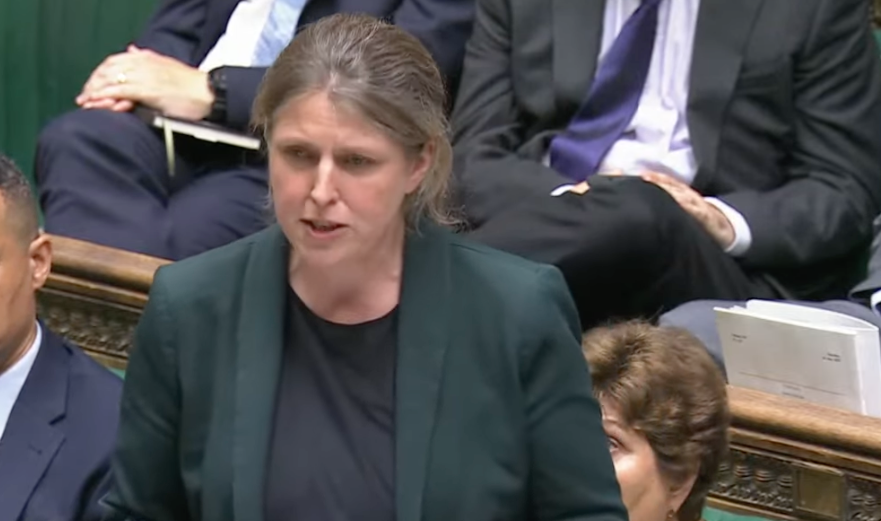On Wednesday afternoon, York Central MP Rachael Maskell, like most MPs, was winding down, getting ready for a long summer recess to recharge, take stock and come back refreshed.
Many of her colleagues were hitting the summer drinks circuit in Westminster, with dreams of the various beaches in different corners of the Mediterranean they would soon be heading to.
But then Maskell got a call out of the blue asking her to go and see the Labour chief whip, Sir Alan Campbell, immediately.
Starmer strikes back
She was to discover that the prime minister – after discussion with his closest allies – had decided to strike back. The talk of deputy prime minister Angela Rayner or possibly health secretary Wes Streeting replacing him had got too much.
And it was clear after the welfare rebellion, which Maskell had in the end reluctantly led, that he had lost control and needed to restore it.

The plan to make examples of a few troublemakers was, it is claimed by one source, “cooked up at Chequers” between him, Sir Alan and chief of staff Morgan McSweeney when senior ministers, key staff and others were called in to have a much-needed reset.
It was perhaps also a message to the MPs – if one was needed – that their demands for McSweeney to be sacked would not be heeded and that he still wields influence over this government.
The meeting with the chief whip on Wednesday afternoon was short, with Maskell discovering that she and three other colleagues – Neil Duncan-Jordan, Brian Leishman and Chris Hinchliff – had been suspended from the parliamentary Labour Party. Three others lost their trade envoy roles.
“I was very shocked,” Maskell admitted to The Independent.
“I had no warning at all. I had no idea that this was coming, and I think that doesn’t make for good party management. They should have engaged. There was no pre-warning.”

The York Central MP had ended up being one of the leading welfare reform rebels, proposing a reasoned amendment on the day when Sir Keir had been forced to make a humiliating second U-turn and essentially cancel £5bn of disability benefit savings to avoid defeat.
An interesting briefing went out that the four had been chosen for "persistent k***headery” – put in normal English, it meant they were serial rebels.
Normally, suspensions of the whip for rebels take place in the immediate aftermath of a vote – and there were 49 Labour MPs who voted against their government, 45 of whom have not been suspended.
A rebellion ‘by the book’
Maskell admitted to being stunned by the whole surprise strike.
During her opposition to the welfare reform, she thought she had played it by the book.
“I reached out to No 10, I wrote to Keir Starmer a couple of times, I engaged with ministers, I wrote to the chief whip. There was never any indication that there would be any ramifications for this.”

And she still has not had an explanation as to why she and the other three were singled out.
“Obviously, my name was on the reasoned amendment, but it was the exact same reasoned amendment as the one by Dame Meg Hillier [which had been withdrawn after an initial U-turn]. I think we’re curious as to why the four of us have been identified in this situation.”
Champagne for Starmer’s allies
The evening after the news broke, the Labour Together think tank, which McSweeney had used as the vehicle to destroy Jeremy Corbyn, held its summer drinks with a raft of loyalist MPs and ministers.
As the champagne flowed and glasses clinked, Mr Streeting gave the main “rah-rah” speech with an uncoincidental message that it was Starmer and McSweeney “who won us the election”, just in case people needed reminding.
In that particular reception, Streeting was mostly preaching to the converted, but it was less true in other summer drinks gatherings.

A number of sympathetic rebels had gone over the night before the suspensions to the Diageo drinks in the garden connected to Westminster Abbey, where they rubbed shoulders with loyalists, Tories, Lib Dems and the odd SNP MP.
There, several Labour MPs had sung the praises of Maskell for her leadership in the rebellion, with one more centrist rather than lefty rebel noting: “I didn’t come into politics to cut money for the disabled.”
“Good for Rachael for not backing down,” said another.
The shock the next day when the axe fell on the four rebels was palpable.
“The fact he has to do this is a sign of weakness,” one critic noted.
“Absolutely shameful to target Rachael,” said another.
Targeting four ‘loners’
Nobody could work out why those four had been chosen, with the exception of Neil Duncan-Jordan, who had been expected to quit the party anyway.
Starmer had discussions with his chief whip and McSweeney over a concern that “he was losing control of the party.”
“He needed heads on spikes, he needed to reassert authority,” noted one ally.

They went through the list of the 49 who had rebelled, knowing that they could not suspend them all but wanting to select a few for special treatment.
But why those four? The suspension of Maskell in particular really grated with many of her colleagues, even ones who did not agree with her on welfare.
The abiding theory, though, is that the four were “loners”, as one Labour MP put it.
“They are people without a real base.”
An article of faith
In particular, Maskell’s Christianity appears to have been a factor in her being singled out. There are a number who wonder if Starmer “has a Christianity problem”.
She cuts a lonely figure on the Labour benches opposing abortion and in a minority on ethical issues such as assisted dying, but beyond those conscience debates, she has always made it clear that her faith shapes her politics, not the other way round.

Maskell quoted to The Independent one of Jesus Christ’s famous parables, in which God divided the sheep and the goats into those who “helped the hungry and thirsty and those who needed clothing”, who went to paradise, and those who did not, who went to hell. For Maskell, that was a guiding principle in the consideration of benefits for the disabled.
“I don’t think the whips can determine what your conscience is,” she added.
But she noted: “I don’t think it’s well understood about those kinds of deep motivations of faith. It’s about public service for people out there, but actually, being that voice in parliament is important, and it’s important, I think, at a time when our country is in such a state, to be able to try and discern that responsibility.”
It is not without irony that Starmer had decided his own version of the sheep and goats, casting the four rebels into parliamentary outer darkness.
Joining the Corbyn party
With Jeremy Corbyn and Zarah Sultana setting up a party, there was a feeling that some Labour MPs may be tempted to join, especially if they were ousted.
There were more prominent names on the left who could have just as easily been suspended, “who would have walked straight into a Corbyn party”, one MP noted.
Maskell said she would not, “but others might do”.
“You cannot find anybody more Labour than me,” she insisted, adding that she would “not change” to be allowed back into the fold again.
Another senior figure put it more bluntly: “I think Starmer is finished. But if he keeps throwing people out to save himself, then Jeremy [Corbyn] is going to have more friends joining him.”
Even allies are uncertain. At those Labour Together drinks, one figure on the right of the party said: “I think it was a mistake. He should have suspended the whip immediately. All he has succeeded in doing is reminding people of what happened, just as it moved off the agenda. Now it will linger in people’s minds over the summer.”






